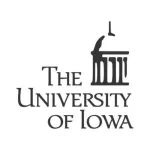
UI news release
The University of Iowa has received a top rating for sustainability efforts by a national association focused on sustainability in higher education.
The Association for the Advancement of Sustainability in Higher Education announced earlier this semester that Iowa received a gold rating from its Sustainability Tracking, Assessment and Rating System (STARS).
STARS is a self-reporting framework for universities to measure their sustainability performance in categories of academics, engagement, operations, planning and administration, and innovation and leadership. A gold rating is the second-highest rating a university can achieve.
Receiving the STARS gold rating represents a shared commitment to sustainability across academics and operations at the UI. The university continues to see progress around sustainability efforts and the positive impact they have on students, faculty, and staff, while also promoting efficient resource stewardship and innovation.
The designation is the culmination of years of work to become a leader in sustainability, with related goals embedded in the university’s 2022–2027 strategic plan.
Bringing sustainability to the classroom
To prepare students to become future leaders, Iowa focuses on embedding sustainability into curriculum and student experiences.
According to the STARS report, the UI has increased the number of sustainability courses it offers by 44% from 2018 to 2024, with 74% of departments offering at least one such course. The College of Liberal Arts and Sciences (CLAS), College of Public Health, and College of Education all require a sustainability course as a general education requirement.
The UI also offers faculty, staff, and students across all departments the opportunity to work with Iowa communities on sustainability efforts through the Iowa Initiative for Sustainable Communities (IISC). UI faculty and students partner with one or two communities across the state to tackle real-world projects related to sustainability. IISC has worked with more than 60 Iowa communities on more than 400 projects since 2009.
In fall 2025, the UI will take yet another step to strengthen its sustainability efforts in the classroom. CLAS will combine the current departments of Geographical and Sustainability Sciences and Earth and Environmental Sciences, along with the Environmental Sciences program, into the School of Earth, Environment, and Sustainability. The new school will offer three majors, along with minors and certificates, increasing student access to a range of career paths in the field.
“This new school will strategically build environmental work as a core pillar of CLAS, grow collaborative and interdisciplinary research, and increase student access to the wide range of career paths in these areas,” says Sara Sanders, dean of CLAS.
Reducing carbon footprint in campus operations
The UI is actively working to meet its goal of being able to operate as a coal-free campus by 2025 in part by pioneering a biomass program to explore alternate fuel sources, such as energy pellets, wood chips, oat hulls, and miscanthus grass. A wide diversity of fuels will ensure greatest sustainability, operational cost efficiencies, and system reliability regardless of fuel supply availabilities and market costs.
The STARS report notes that, as of 2022, 84% of the UI’s total electricity comes from green power, making it a leader in higher education for green power use.
The UI also prioritizes sustainable goals in construction and design standards of its facilities, including recommissioning existing buildings to minimize energy consumption and using green principals in the design and construction of new facilities and major renovation projects.
Other projects are also in the works to continue to reduce the UI’s carbon footprint. The Federal Transit Administration awarded the UI a $16.4 million grant for improvements to the Cambus system, including the purchase of six new battery-electric buses that are expected to arrive in 2026. In addition, the Cambus Maintenance Facility will be upgraded to house the electric buses and be able to accommodate buses using alternate types of fuel in the future.
“All across campus we are working to reduce our carbon footprint by prioritizing sustainability in innovative ways, and we have for years,” says Rod Lehnertz, senior vice president for finance and operations. “The UI’s commitment to sustainability and environmental stewardship are important factors when recruiting and inspiring students, faculty, and those who support the University of Iowa.”


